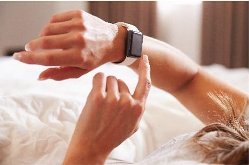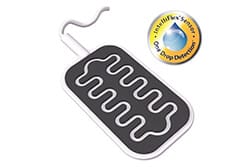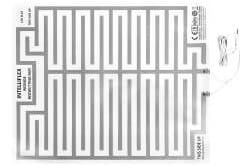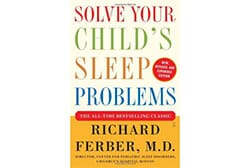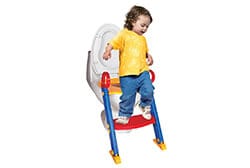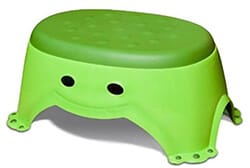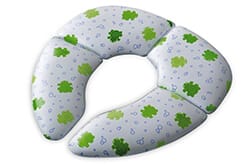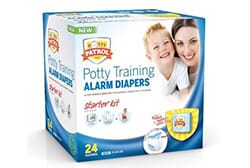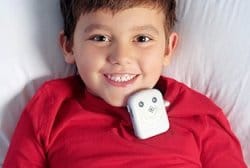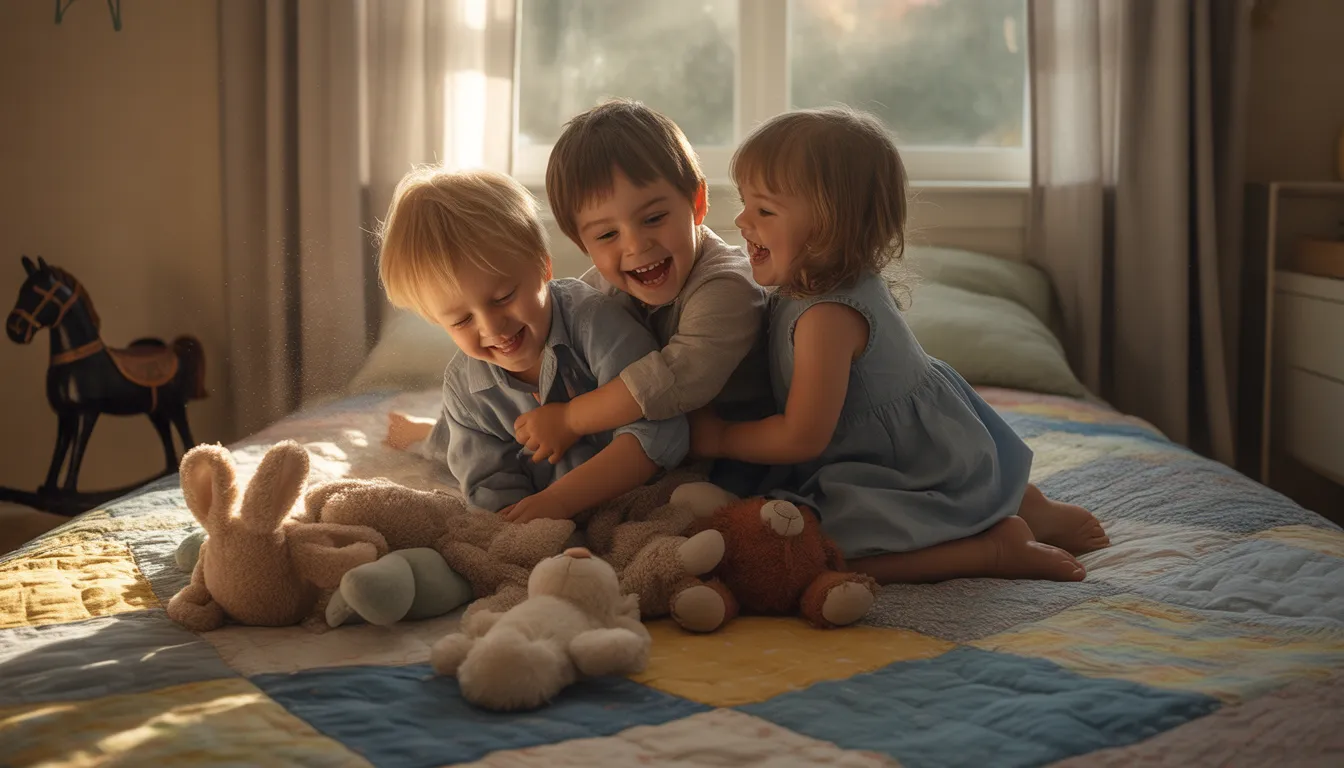Bedwetting, also known as nocturnal enuresis, affects millions of families worldwide. While occasional nighttime accidents are normal for young children, persistent bedwetting can cause frustration, embarrassment, and even disrupt daily life. It’s not just younger kids—teenagers and even adults can experience bedwetting due to factors such as deep sleep, stress, delayed bladder maturation, or underlying medical conditions. Among the many solutions available, bedwetting alarms have emerged as one of the most effective and recommended tools. But can these devices truly solve the problem?
A bedwetting alarm works by detecting the first signs of urine and alerting the user to wake up. Over time, these alarms train the brain to recognize the feeling of a full bladder, helping the individual wake before bedwetting occurs. In this article, we’ll examine how they work, their effectiveness, and whether they are worth the investment for children, teens, and adults.
How Do Bedwetting Alarms Work?
The key purpose of a bedwetting alarm is to create a neurological connection between the feeling of bladder fullness and waking up. These devices use a moisture sensor that identifies the smallest amount of urine, triggering an alert. Alarms typically use sound, light, and vibration to ensure even the deepest sleepers are woken up. The consistent interruption at the start of urination conditions the brain to associate the sensation of a full bladder with waking, eventually leading to natural nighttime dryness.
Initial use of the alarm may require parental involvement, particularly with children, to help them get up and use the restroom. However, over time, the device empowers the user to wake up on their own. Most individuals see significant improvement within a few weeks to a couple of months, although the timeline varies from person to person.
To explore alarms specifically designed for younger users, visit bedwetting alarms for children.
The Science Behind Bedwetting Alarms
Unlike medication, which may only address the symptoms of bedwetting temporarily, bedwetting alarms offer a more sustainable, long-term solution. According to clinical research, alarms boast a success rate of up to 80% when used consistently. They work through behavior conditioning—retraining the brain to respond to bladder signals, reducing reliance on medication, and eliminating the need for pull-ups or diapers.
In children and teens, the brain may take longer to learn this response, especially for deep sleepers. However, many users have found great success with alarms that incorporate strong vibrations, loud sounds, and unique alert tones. For teens and adults with nocturnal enuresis, specialized bedwetting alarms for teens or bedwetting alarms for adults provide tailored solutions with discretion and comfort.
Why Bedwetting Alarms Are Superior to Other Methods
Bedwetting alarms stand apart because they address the root cause—poor communication between the brain and bladder—rather than masking the issue. Other alternatives, such as medication, pull-ups, or limiting fluids before bed, don’t solve the underlying problem as effectively.
Medications and Bedwetting Alarms: Medications like desmopressin reduce urine production temporarily but stop working once discontinued. Alarms, on the other hand, teach physiological control, offering lasting results.
Diapers and Bedwetting Alarms: Diapers or disposable pull-ups may contain the mess, but they don’t help the user develop the skills needed for independence from bedwetting. Alarms are behavior-focused and prioritize a permanent solution.
Behavioral Changes: Limiting fluids before bedtime or encouraging frequent bathroom visits can help reduce accidents but are rarely sufficient on their own. When paired with a bedwetting alarm, however, these practices enhance the speed and effectiveness of treatment.
By offering tailored alarms for different needs, such as bedwetting alarms for teens, families can select the devices best suited to their unique circumstances.
Benefits of Using Bedwetting Alarms
A bedwetting alarm offers a range of advantages, from practicality to long-term results. Compared to medications or diapers, alarms are cost-efficient and non-invasive. Let’s take a closer look at why they remain a standout solution:
Permanent Dryness: With consistent use, the alarm permanently trains the brain and bladder to work together, achieving natural dryness.
Non-Invasive and Drug-Free: Unlike medications, alarms work without any adverse side effects or risks, making them safe for all ages.
Customizable Alerts: Features like customizable tones, adjustable volume levels, and strong vibrations ensure effectiveness for light and deep sleepers alike.
Ideal for All Age Groups: Whether you’re addressing children’s bedwetting issues or adult incontinence, there are specific models that cater to the user’s comfort, privacy, and needs. For adults, bedwetting alarms for adults provide a discreet solution to tracking or stopping nighttime accidents.
Boosted Self-Confidence: By helping users overcome bedwetting permanently, alarms play a significant role in improving confidence, reducing stress, and enabling participation in activities like sleepovers or travel.
Are Bedwetting Alarms Suitable for Everyone?
Bedwetting alarms are versatile and cater to different age groups and sleep behaviors.
Children and Younger Users
For children aged 4 to 12, bedwetting alarms are one of the most successful and widely-recommended treatments. These devices are gentle on sensitive skin, easy to use, and ideal for helping children gain independence. Parents often monitor the training process initially, ensuring the child gets used to waking up.
Teenagers with Persistent Bedwetting
Bedwetting is uncommon among teenagers but can cause emotional stress and embarrassment when it persists. Teen-friendly alarms offer discreet features, such as vibration-only modes, to ensure privacy during sleepovers or camps. Bedwetting alarms for teens are loud enough to wake deep sleepers while remaining compact and portable.
Adults Facing Bedwetting Challenges
Whether due to stress, medical conditions, or aging, adults may also struggle with nighttime accidents. Devices tailored for adults offer solutions that integrate seamlessly into their routines. Bedside alarms and large, comfortable sensors are particularly effective in promoting dryness. For more insights, visit bedwetting alarms for adults.
Parental Tips for Supporting Bedwetting Alarm Training
While alarms are effective tools, success also depends on consistent usage and parental involvement. For younger children, parents may need to assist them in responding to the alarm in the initial weeks. Here’s how parents can enhance the training process:
- Follow a Consistent Routine: Set up the alarm every night and create a reward system to motivate progress.
- Encourage Bathroom Trips Before Bed: Emptying the bladder before sleep helps reduce the likelihood of starting the night with a full bladder.
- Clean and Maintain the Device: Ensure the sensor is hygienic and working correctly to avoid false alarms or failures.
These practices, combined with a quality alarm, contribute significantly to a speedy and successful outcome.
Common Concerns Regarding Bedwetting Alarms
Parents and users often share questions or hesitations when considering bedwetting alarms. Here are answers to some of the most common concerns:
Are Alarms Too Loud for the Rest of the Family?
Some alarms come with adjustable volume settings, allowing users to customize tone levels. Vibration-only modes are a great solution for families sharing rooms or spaces.Can Deep Sleepers Use These Effectively?
Alarms designed with strong sensory feedback—such as vibrations, lights, and multiple sounds—are proven effective for waking even the deepest sleeper.How Soon Will We See Results?
The timeline for success varies but usually ranges from a few weeks to months. Consistent usage and reinforcement ensure faster adaptation.
Final Thoughts: Are Bedwetting Alarms Worth It?
For families searching for a practical, non-invasive, and reliable solution to achieve dryness, bedwetting alarms are an excellent choice. Designed for all ages, they work by promoting a fundamental change in how the brain and bladder communicate. While they require time and commitment, their long-term effectiveness far outweighs temporary fixes like medications or pull-ups.
Whether you’re dealing with a child, teenager, or adult facing bedwetting challenges, investing in an alarm can offer permanent relief and greater confidence. With tailored alarms available for everyone, from bedwetting alarms for children to those suited for teens and adults, there’s a solution for every need. By addressing the root cause of bedwetting, these devices empower users to enjoy dry, restful nights, free from stress and inconvenience.
Related Articles
Bedwetting Alarms: Restoring Confidence in Children Who Experience Bedwetting



 Our #1 Top SellerIdeal for Daily Use
Our #1 Top SellerIdeal for Daily Use Premium Quality BeddingSoft and Comfortable
Premium Quality BeddingSoft and Comfortable Premium Quality BeddingLarge Urine Absorption
Premium Quality BeddingLarge Urine Absorption AFFORDABLE PRICECHANGE DAILY AS NEEDED
AFFORDABLE PRICECHANGE DAILY AS NEEDED
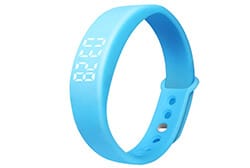 Sleek, Stylish and Affordable Watch
Sleek, Stylish and Affordable Watch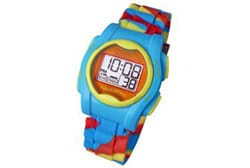 Multi-Function Watch with Numerous Features
Multi-Function Watch with Numerous Features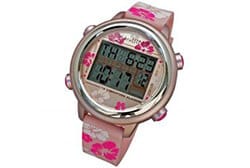 Recommended watch for teens and adults
Recommended watch for teens and adults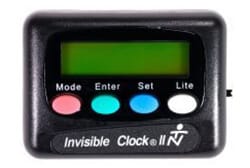 Perfect for medication and other reminders
Perfect for medication and other reminders